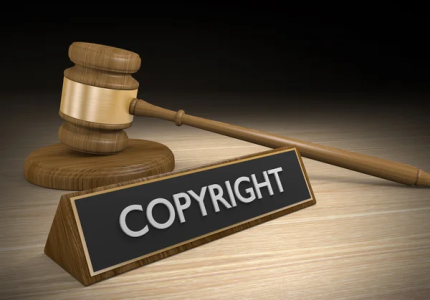Are your favourite songs and books at risk under shocking new AI law?
By
- Replies 21
Are you a fan of classic Aussie rock? Or maybe you love losing yourself in a homegrown novel or singing along to timeless local hits?
There’s a new threat on the horizon: warnings that a proposed copyright law change could let AI companies freely mine music, books, and other creative works without paying creators a cent.
At a recent creative industries town hall, Garrett didn’t mince words. He described Big Tech's push to 'scrape' the text and data from songs, books, plays, and films as a 'moment of reckoning' for Australia.
The concern is that a policy option floated in the Productivity Commission’s interim report would create a new 'fair-dealing' exception under the Copyright Act.
This would allow AI companies to use copyrighted works to train their models—think chatbots, music generators, and more—without compensating the original creators.
Garrett warned, 'The threat here is literally to our cultural, political, social and economic sovereignty… If we don’t take it up to our politicians, then we’ll be left as roadkill on the side of the road. It won’t just be musicians lying there, wounded and bleeding. It’ll be all of us.'
If you think this is all a bit abstract, consider what happened to Crowded House.
The band recently had to call out a fake AI-generated ad on social media.
The ad, disguised as a news report, used a cloned version of Neil Finn’s voice and likeness to promote a men’s health product, falsely claiming he’d become a father again at 67 after overcoming erectile dysfunction.
The band’s response? 'We’re not sure where this came from but please don’t be fooled. Neil’s never had trouble with erections.'
It’s a funny story—until you realise how easily AI can be used to create convincing fakes, putting words in people’s mouths and undermining trust in what we see and hear.
Lizzie O’Shea, chair of Digital Rights Watch, pointed out that it’s not just artists who are at risk.
If privacy laws are weakened alongside copyright protections, the personal information of everyday Australians could be up for grabs.
She cited a recent incident where security researchers found a vulnerability in an AI chatbot used by Paradox.ai, which exposed the personal data of thousands of Aussies applying for jobs at McDonald’s.
'AI is only as good as the data it’s trained on,' O’Shea said.
'And that personal information was often collected for an entirely different purpose than training a large language model… that has obviously quite serious ethical implications.'
You might think, 'I’m not a songwriter or a novelist—why should I worry?'
But this issue goes beyond the arts. It’s about who controls our stories, our culture, and even our personal information.
If Big Tech companies can take what they want without asking—or paying—what’s to stop them from using your photos, your words, or your data next?
Plus, many of our members have children and grandchildren working in creative fields. If these laws go through, it could make it even harder for young Aussies to make a living from their talents.
Australia has a proud tradition of storytelling, from Banjo Paterson to Midnight Oil. Our songs, books, and films are part of who we are.
Let’s make sure they’re not just fodder for overseas tech giants looking to make a quick buck.
 Have you ever had your work or personal information used without your permission? Are you worried about the rise of AI and what it means for Aussie culture? We’d love to hear your thoughts. Please share your stories and opinions in the comments below.
Have you ever had your work or personal information used without your permission? Are you worried about the rise of AI and what it means for Aussie culture? We’d love to hear your thoughts. Please share your stories and opinions in the comments below.
Read more: ATO warns Aussies risking tax refund with this simple mistake
There’s a new threat on the horizon: warnings that a proposed copyright law change could let AI companies freely mine music, books, and other creative works without paying creators a cent.
At a recent creative industries town hall, Garrett didn’t mince words. He described Big Tech's push to 'scrape' the text and data from songs, books, plays, and films as a 'moment of reckoning' for Australia.
The concern is that a policy option floated in the Productivity Commission’s interim report would create a new 'fair-dealing' exception under the Copyright Act.
This would allow AI companies to use copyrighted works to train their models—think chatbots, music generators, and more—without compensating the original creators.
Garrett warned, 'The threat here is literally to our cultural, political, social and economic sovereignty… If we don’t take it up to our politicians, then we’ll be left as roadkill on the side of the road. It won’t just be musicians lying there, wounded and bleeding. It’ll be all of us.'
If you think this is all a bit abstract, consider what happened to Crowded House.
The band recently had to call out a fake AI-generated ad on social media.
The ad, disguised as a news report, used a cloned version of Neil Finn’s voice and likeness to promote a men’s health product, falsely claiming he’d become a father again at 67 after overcoming erectile dysfunction.
The band’s response? 'We’re not sure where this came from but please don’t be fooled. Neil’s never had trouble with erections.'
It’s a funny story—until you realise how easily AI can be used to create convincing fakes, putting words in people’s mouths and undermining trust in what we see and hear.
Lizzie O’Shea, chair of Digital Rights Watch, pointed out that it’s not just artists who are at risk.
If privacy laws are weakened alongside copyright protections, the personal information of everyday Australians could be up for grabs.
She cited a recent incident where security researchers found a vulnerability in an AI chatbot used by Paradox.ai, which exposed the personal data of thousands of Aussies applying for jobs at McDonald’s.
'And that personal information was often collected for an entirely different purpose than training a large language model… that has obviously quite serious ethical implications.'
You might think, 'I’m not a songwriter or a novelist—why should I worry?'
But this issue goes beyond the arts. It’s about who controls our stories, our culture, and even our personal information.
If Big Tech companies can take what they want without asking—or paying—what’s to stop them from using your photos, your words, or your data next?
Plus, many of our members have children and grandchildren working in creative fields. If these laws go through, it could make it even harder for young Aussies to make a living from their talents.
Let’s make sure they’re not just fodder for overseas tech giants looking to make a quick buck.
Key Takeaways
- Midnight Oil’s Peter Garrett is urging Australians to campaign against proposed changes to copyright law that would let AI companies train their models on music, books and art without compensation to creators.
- The debate follows incidents like Crowded House calling out a fake AI ad that used Neil Finn’s likeness and voice to promote erectile dysfunction treatment.
- Digital Rights Watch warns the proposed laws could jeopardise not only artists’ livelihoods but also Australians’ personal privacy, noting recent AI leaks of job applicant data.
- Garrett and other advocates are calling on the government to install strong safeguards to protect Australian culture and personal information from Big Tech exploitation, encouraging people to lobby their local MPs.
Read more: ATO warns Aussies risking tax refund with this simple mistake









